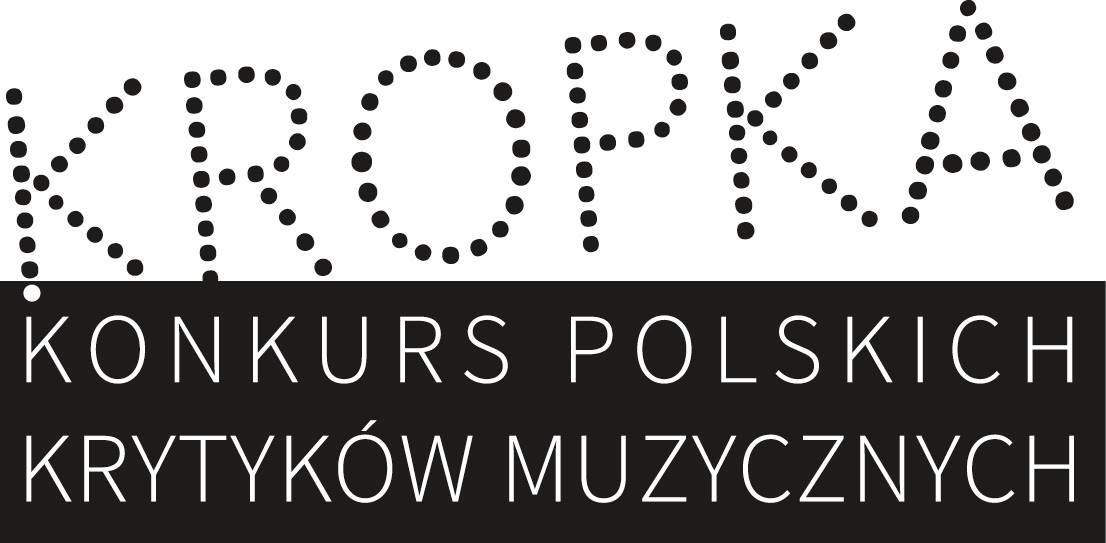The twentieth century, taken in its entirety, was an unusually dynamic time for the world and for Poland, a country that did not exist at the beginning of that century and that, after it returned to the map, soon faced the struggles of World War II and Communism. Poland’s difficult history consists of millions of individual biographies. These biographies tell the story of struggles for personal liberties, creative freedom, money, career, education, and often for life itself.
This historical complexity, as well as the reality of technological progress, makes it difficult to compare the situation of composers who had been creating, for example, in the interwar period with those working in the current European Union, in the era of the Internet, cell phones, freedom of creative expression, and the ability to move easily to any country (or even between continents). Composers generously use the possibilities offered by the present day. Mobility no longer means resigning from a career in their homeland, because leaving is not the last resort and emigration is not exile anymore. And yet not so long ago Tomas Venclova wrote in a letter to Czesław Miłosz: “We must get used to a second life in the West. In a sense, it will be a posthumous life. We meet people we had no hope of meeting in this world and we are separated from our old friends forever. Contacts with them are of a slightly spiritual nature”[1]. In this context, the private and professional lives of all those musicians who today, living in different parts of the world, use Skype for concert rehearsals, seem so different.
Motivations for Leaving
Why did composers decide to emigrate? For varied reasons, of course. Often it is difficult to distinguish the most important incentive for leaving one’s homeland, but it is almost never an easy decision and sometimes it is one that has to be made quickly. Sometimes composers can explain why they planned to emigrate, but often only coincidence or other circumstances prompt such a radical step (e.g., the outbreak of war while a composer is out of the country).
The most frequent reasons for emigration from Poland include:
- escaping war to save one’s life,
- rampant anti-Semitism in the country,
- lack of opportunities for development along with the disapproval of a conservative artistic environment,
- refusal to live in a totalitarian state,
- educational motivations (scholarships, education in a chosen school, internships, etc.)
- work-based migrations (specific professional contracts or expanding career opportunities),
- personal reasons (for ex. Family tragedy),
- coincidence (including a change in a country’s borders).
Another important factor is the new reality connected with Poland’s accession to the European Union, but also crucial is the specificity of today’s nomadic times, in which an artist’s life can become almost a never ending journey.
Life Above All
Fear for one’s own life often provides the strongest impulse to escape, even from one’s home, with its cost of parting from loved ones. Such a threat may happen in times of war, but also in times of relative peace, if this apparent serenity is disturbed by widespread hatred directed towards a particular group of people. With anti-Semitism, such hatred was experienced by Polish composers shortly after Hitler gained power in 1933, before the outbreak of World War II. Karol Rathaus and Bronisław Kaper gave up promising careers in Germany in order to avoid persecution. It is highly likely that emigration saved them from death.
For many, leaving Poland provided an escape from a dangerous area. In August 1939, Tadeusz Zygfryd Kassern evacuated first to Lviv (together with the entire General Prosecutor’s Office) and then, because of his Jewish origin, he hid in various Polish cities (he was wanted by the Gestapo). In 1939, an escape from Warsaw (attacked by Nazis on 1 September) to the east of Poland (which was invaded by the Soviet Union on 17 September) saved the life of Mieczysław Weinberg; unfortunately, his younger sister Estera, also a pianist, and their parents remained in occupied Poland and died a tragic death in the Trawniki concentration camp in 1943. His departure from Poland closed, as the composer stated, “the best and happiest period in his life”[2]. On the other hand, it extended life itself for many: Ryszard Sielicki also found himself in the Soviet Union during the war, along with Stanisław Landau, who joined Anders’ Army; later, Landau took part in the battle of Monte Cassino and finally emigrated to England.
Serving in Anders’ Army was not an unfamiliar experience for other artists as well. Roman Haubenstock-Ramati studied composition under Józef Koffler at the M. Lysenko State Conservatory in Lviv from 1939. His studies were interrupted by the war, arrest, and finally deportation to Odessa and Tomsk. He joined Anders’ Army thanks to an amnesty in 1942 and became a member of its orchestra.[3] Joining Anders’ Army was associated with the risk of death, but in some cases, it influenced a decision to emigrate. One interesting example of this type concerns Alfred Schütz, who joined Anders’ soldiers in 1941 together with Henryk Wars, Kazimierz Krukowski, and Konrad Tom:
“After the evacuation [of the army] to Iran, he performed in Tehran with the Polish Soldiers Theatre [Teatr Polskiego Żołnierza]… He also prepared and hosted radio broadcasts for Poles in Cairo, Baghdad, and Jerusalem, and later in Rome and Florence… In 1947 he left for Brazil, where he spent 14 years. Together with Jerzy Petersburski he created a piano duo and gave concerts in Rio de Janeiro, Sao Paulo and the clubs of Copacabana”[4].
A number of composers did not survive the war; we may assume that if they had emigrated from Poland, their lives would not have ended so tragically. Zygmunt Moczyński was murdered by the Gestapo on September 17, 1940 in Palmiry, Jakub Mund was sent to the Janów camp in Lviv around 1942, and in the same year Feliks Halperin died in the Łódź Ghetto, while the place of Leon Zelman’s death is unknown. Wiktor Hausman died in a prison in Płock in 1943, after being arrested for participating in the resistance movement. Józef Koffler, one of the most interesting Polish composers of the interwar period, probably survived the liquidation of the Wieliczka Ghetto in 1942, but he did not succeed in fleeing from the Nazis and was murdered together with his family in 1943 or 1944. Roman Padlewski, whose String Quartet remains a testimony to his talent, was killed in the Warsaw Uprising. Joachim Mendelssohn was shot in the Warsaw Ghetto, the same place where Marian Neuteich, in whom Aleksander Tansman saw great talent before the war, was also murdered.
Kazimierz Jerzy Oberfeld also suffered a tragic fate. Although he emigrated from Poland to France as early as 1931, when the Italians handed Nice over to the Germans in 1943, he was arrested and sent to Auschwitz. He died on the train during the camp’s evacuation in January 1945. Jan Sztwiertnia, who, in 1939, while preparing for a year-long scholarship to study composition in Paris, was arrested (probably by mistake) and transported to the Gusen concentration camp, where he died on August 29, 1940. Cieszyn, the composer’s hometown, still commemorates him. Bronislaw Wolfstahl died on September 15, 1944 during the evacuation of Warsaw’s Wola district. Korneliusz Brzozowski was wounded in the Warsaw Uprising and died on September 19, 1944. Alfred Stadler was arrested, held hostage, and shot in Lviv in 1944. Polish composers did not die only at the hands of Nazis. Henryk Skirmuntt was arrested in Moladava, Belarus just after the Soviet Union invaded Poland; he was brutally tortured and shot, together with his sister, by Soviet activists on September 20, 1939.
Among émigré biographies, especially those spanning the Second World War, the stories of two brothers, Michał and Stanisław Freszko, are especially compelling. Both of them were involved in entertainment before the war and both composed and were pianists (Michał was appreciated for his interpretations of Chopin). Stanisław left for Vienna in 1937 and then went to Palestine, eventually settling in the United States in 1952. As a musician he was quite successful, earning the name of the “Israeli Gershwin”. Michał, on the other hand, stayed in Poland, took part in the September campaign in 1939 and, beginning in 1940, was a member of Arthur Gold’s orchestra in the Warsaw Ghetto. He did not survive the war. Gold’s story was similar; he was murdered in Treblinka towards the end of the camp’s existence (even though he had led an orchestra there, which presumably might have saved him from death). His younger brother Henryk established a dance and jazz orchestra band with Jerzy Petersburski in the Soviet Union in 1939, then from 1942–1945 served in Anders’ Army and the Second Polish Corps[5]. He spent part of his long postwar life in Paris, later moving to the United States.
It goes without saying that the nightmare of war prevented the talents of many people from seeing the light of day. Many promising artists had died before 1939 and an enormous amount of their work did not survive the turmoil of military operations. For many artists, the war meant the collapse of their developing careers, often permanently. For some, psychological issues became a concern (e.g., following his horrifying concentration camp experiences, Szymon Laks was unable to compose for many years).
Lack of Acceptance
Roman Palester decided to leave Poland in the late 1940s because of his unwillingness to work within a totalitarian system. The composer did not agree with the restrictions imposed on individual liberties, including creative freedom; he was also disgusted with the growing push to create music for “the masses”. In his own words,
“Before the war we composers and musicians – artists in general – created a homogeneous and close-knit community. Nothing in Polish musical life happened without our knowledge. In Łagów, I noticed a strange kind of distance among my colleagues. They avoided conversation, they didn’t look into each other’s eyes, they didn’t talk about things honestly. It was the beginning of an era of lies, but these lies always had some ‘lining’, some ‘second layer’, which meant that both parties didn’t take what they said to each other seriously. Everything was done tongue-in-cheek. And this is what I couldn’t figure out… I left Łagów feeling that one could only partly distinguish between the truth and a lie. Growing tired of having to recognize what is not yet a lie, but might be in a moment, removes the ground from under your feet. You begin to fear that tomorrow we may not be able to distinguish between good and evil, truth and lie, loyalty and betrayal – and that, therefore, you have to escape”[6].
Palester finally decided to accept the status of a political emigrant, which resulted in his removal from the Polish Composers’ Union and the banning of his work from publishing and distribution inside Poland. Although he managed to rebuild his life outside the country, he always regretted how his former colleagues treated him. As he wrote to Andrzej Panufnik in March 1961, “I’ll admit to you that I wouldn’t defend our friends there… They are now acting like ‘free’ people in the eyes of the West, but quietly complain that their [cultural] programs are controlled, and that you and I are not allowed to be performed. (Meanwhile, I am convinced that this is their fear, because a brave enough kapellmeister could smuggle us in.) So as free as they pretend to be, they are not, but they ask not to say it aloud, because it ‘may harm them’. By the way, I have some doubts about whether this is true at all. And I will admit to you honestly that I have no intention of going to loggerheads with them, because they don’t really care about us, and their careers are easier now that we’re gone. Besides, the West is already bored with this reminder of the political side of the issue, so I have come to the conclusion that it is not worth defending our colleagues – as a whole, of course, because one or another of them may be a decent person and a friend, but deep down they are resentful about the fact that we are right. Therefore they don’t like us”[7].
Panufnik shared a similar revulsion towards the new cultural policies of the Polish People’s Republic. Once the government’s favorite composer, who had good opportunities to build a career in his homeland, Panufnik decided instead to ask for asylum in Great Britain. This decision was an extremely courageous step, considering his professional life in Poland appeared to be excellent and he was recognized internationally; in 1950 he became vice-president of the Conseil international de la musique at UNESCO in Paris. Panufnik strived for creative freedom and acceptance of his own choices. He refused to write music for the masses and to yield to the pressure of Poland’s cultural policies. A curtain of silence fell on him, also.
Disagreement with the current state of things, artistic frustration, and opposition to authorities’ interference in creative freedom also compelled Roman Haubenstock-Ramati to leave Poland; initially he and his family settled in Israel. For him, professional issues and a need to remain faithful to one’s own talent were strongly connected with honesty, understood in a broad sense. Tadeusz Kassern’s decision to give up his position as the Polish consul in the United States was made in harmony with his conscience and personal freedom. As he wrote, “I resigned from the Consuls’ post in 1948 as a protest against the growth of Communism and the Soviet occupation of Poland”[8].
Not all composers in exile manifested their views openly, but even this did not protect them from alienation. As Roman Palester wrote:
“Szałowski was the only composer from this group to have suffered from collateral damage. He had more or less the same views as Panufnik and I, but he did not speak of them very often. Administrative bans hit him simply because in the 1950s the three of us were considered official composers in exile. We took part in various events, we made statements together… and because Panufnik and I supported the Congress for Cultural Freedom, it backfired on Antek as well”[9].
Perspectives for Development
Among the main reasons that young composers go abroad are to learn new skills, expand their network of personal connections, and enrich their knowledge of music and other aspects of life. Residencies abroad provide relative financial security, in part due to scholarships (e.g., from the government). Moreover, they know that they can return to Poland at any time. Often, artists decide to extend their stays in new countries; either they receive attractive commissions or they are otherwise inundated with new opportunities. In the twentieth century, the most popular destinations included France, Germany, Austria, and the United States, which is a special site of inspiration for jazz and film musicians. Of course, this is a generalization, but we are talking about a phenomenon that has lasted for almost a century. The list below shows selected universities where Poles studied in 1918–2018 (the names indicated obviously do not exhaust the whole phenomenon).
- Władysław Eiger – École Normale de Musique in Paris; France;
- Adam Falkiewicz – Royal Conservatory in The Hague; the Netherlands;
- Jerzy Fitelberg – Hochschule für Musik in Berlin; Germany;
- Aleksander Gabryś – Musik-Akademie der Stadt Basel; Switzerland;
- Isabelle (Wiesława Alicja) Garr – Conservatoire National Supérieur de Musique et de Danse de Paris; France;
- Katarzyna Głowicka – Royal Conservatory in The Hague; the Netherlands, Sonic Arts Research Centre, Queen’s University Belfast (doctorate); United Kingdom;
- Mikołaj Piotr Górecki – Indiana University, Bloomington (Ph. D. in composition); United States;
- Piotr Grella-Możejko – Univerisity of Alberta, Edmonton; Canada;
- Barbara Jaźwińska (Jazwinski) – City University of New York (doctorate); United States;
- Jarosław Kapuściński – University of California at San Diego (doctorate); United States;
- Paweł Klecki – Hochschule für Musik in Berlin; Germany;
- Marzena Komsta – Conservatoire National Supérieur de Musique, Lyon; France;
- Hanna Kulenty – Royal Conservatory in The Hague, the Netherlands;
- Dobrochna Daria Kwiatkowska – Cornell University, Ithaca, NY (doctorate); United States;
- Maciej Małecki – Eastman School of Music, Rochester, NY; United States;
- Marta Ptaszyńska – Cleveland Insitute of Music, Ohio; United States;
- Jan Radzyński – Yale University, New Haven, CT, Buchmann-Mehta School of Music, Tel-Aviv; Israel;
- Mirosław Rogala – University of Wales (first doctorate in interdisciplinary arts by a Pole);
- Jerzy Sapiejewski – Catholic University of America, Washington, D. C.; United States ;
- Ryszard Sielicki – Moscow State Tchaikovsky Conservatory; Russia;
- Bettina Skrzypczak – Musik-Akademie der Stadt Basel; Switzerland;
- Paweł Bartłomiej Sydor – Oberlin Conservatory of Music, Ohio; United States;
- Michał Talma-Sutt – Hochschule für Musik, Stuttgart; Germany;
- Ewa Trębacz – University of Washington, Seattle; United States;
- Olga Widawska-Kotulecki – Hochschule für Musik und darstellende Kunst, Vienna; Austria;
- Wojciech Widłak – Royal Academy of Music, Copenhagen; Denmark;
- Krzysztof Wołek – University of Chicago, Illnois; United States, Royal Conservatory in The Hague; the Netherlands;
- Maciej Zieliński – Royal Academy of Music, London; United Kingdom.
In addition to studies, there were also many opportunities related to courses, trainings, workshops, internships, and private lessons (which, of course, did not necessarily mean emigration, but rather a temporary stay).
The most popular destinations for these purposes included:
- Paris: These were mainly courses with Nadia Boulanger. A large number of composers from Poland studied with her and some later decided to emigrate permanently: Michał Kondracki, Felix Roderyk Łabuński, Antoni Szałowski, Michał Spisak, Bernadetta Matuszczak, Roman Maciejewski (although he did not stay long), Piotr Paweł Koprowski, Zbigniew Bargielski, Krzysztof Meyer, Joanna Bruzdowicz, Marta Ptaszyńska, and Marek Żebrowski. In addition to lessons with Boulanger, Polish artists also studied with Paul Dukas (Zygmunt Mycielski) and conductor Phillipe Gaubert (Panufnik) prior to World War II. In later years Elżbieta Sikora studied with Pierre Schaeffer in his Parisian electronic music studio. Younger generations of composers crowd IRCAM, the “mecca” of electroacoustic and computer music.
- Darmstadt and DAAD (Deutscher Akademischer Austauschdienst): Internationale Ferienkurse für Neue Musik (Eugeniusz Knapik, Krzysztof Knittel, Włodzimierz Kotoński, Aleksander Lasoń, Wiesław Rentowski, Zbigniew Bargielski, and Hanna Kulenty).
- Graz: Hochschule für Musik (Zbigniew Bargielski).
- Burgas: International Course for Composers (Aleksander Lasoń).
- Avignon: contemporary music performance courses (Robert Jędrzejewski, Marzena Komsta).
- Marseille: training at the experimental music studio (Grażyna Pstrokońska-Nawratil).
- The Netherlands: Conservatorium Hogeschool Enschede (Katarzyna Głowicka, Olga Hawryluk).
- United States: Fulbright scholarships for composition (Andrzej Dutkiewicz, Tomasz Sikorski).
- Canada: Banff Centre for Arts and Creativity, scholarship (Mikołaj Piotr Górecki).
For some composers the completion of an educational scholarship did not lead to a return home, but rather to a decision to stay. Szałowski, for example, remained in France hoping to develop his international career[10]. Before World War II, Spisak left Poland after receiving a scholarship (granted for his outstanding academic achievements) and never returned.
Classes and internships, aside from providing an opportunity to study at a foreign university, also offer a chance to stay near leading musicians and remain in direct contact with them. For Michał Urbaniak, the United States were a kind of creative mecca. This composer and jazz instrumentalist was well aware that musical inspirations are best drawn directly from the source, which meant not living in Communist Poland. In the world of contemporary music, a similar impulse appeared for Ptaszyńska, who saw in her trip to the United States a chance to learn about the latest trends in percussion techniques. While still in Poland, she joined the American Percussion Society and then receive a coveted scholarship to the Cleveland Institute of Music. Sikora emphasized that her departure was driven by her long-time love for French culture[11], hence her decision to begin electroacoustic studies in Paris in 1968. She returned to Poland for private reasons and did not decide to settle permanently in Paris until 1981, with the start of martial law.
Sources:
[1] Czesław Miłosz, Tomas Venclova, Dialog o Wilnie, quoted in Muzyka źle obecna, ed. Krystyna Tarnawska-Kaczorowska (Warsaw: Polish Composers’ Union, 1989), vol. 1, 19.
[2] Danuta Gwizdalanka, Mieczysław Wajnberg: kompozytor z trzech światów (Poznań: Teatr Wielki im. Stanisława Moniuszki, 2013), 17.
[3] Haubenstock-Ramati returned to Kraków after the war, but emigrated in 1950, first to Israel, then to Paris (thanks to a scholarship), and eventually to Vienna.
[4] Janusz Krassowski, Schütz (Szyc), Alfred, in Marek Podhajski, ed., Polish Music. Polish Composers 1918–2010 (Gdańsk: Akademia Muzyczna im. Stanisława Moniuszki; Lublin: Katolicki Uniwerstet Lubelski Jana Pawła II, 2013), 1102.
[5] Janusz Krassowski, Gold, Artur; Gold, Henryk, in Marek Podhajski, ed., Polish Music. Polish Composers 1918–2010, 488–489.
[6] Roman Palester, Prawda źle obecna, in Muzyka źle obecna, ed. Krystyna Tarnawska-Kaczorowska (Warsaw: Polish Composers’ Union, 1989), vol. 1, 33.
[7] Letter from 17 March 1961, quoted in Beata Bolesławska-Lewandowska, Emigracyjne drogi Romana Palestra i Andrzeja Panufnika, “Roczniki Kulturoznawcze” 2017, vol. 8, no. 2, 167, [accessed 2 January 2021].
[8] Violetta Kostka, Kassern, Tadeusz, in Marek Podhajski, ed., Polish Music. Polish Composers 1918–2010, 584.
[9] Palester, Prawda źle obecna, 31.
[10] We have to remember that Szałowski felt rejected by the composers’ community in Poland after 1945, which under socialist realism refused to accept émigré composers, whom the government considered “enemies of the people’s state”.
[11] Anna S. Dębowska, Elżbieta Sikora: Zawód kompozytora nie ma płci. Sylwetka autorki opery “Madame Curie”, “Wysokie obcasy” 20 May 2017, [accessed 30 November 2017].
Link to the store: HERE.
Partnerem Meakultura.pl jest Fundusz Popierania Twórczości Stowarzyszenia Autorów ZAiKS











